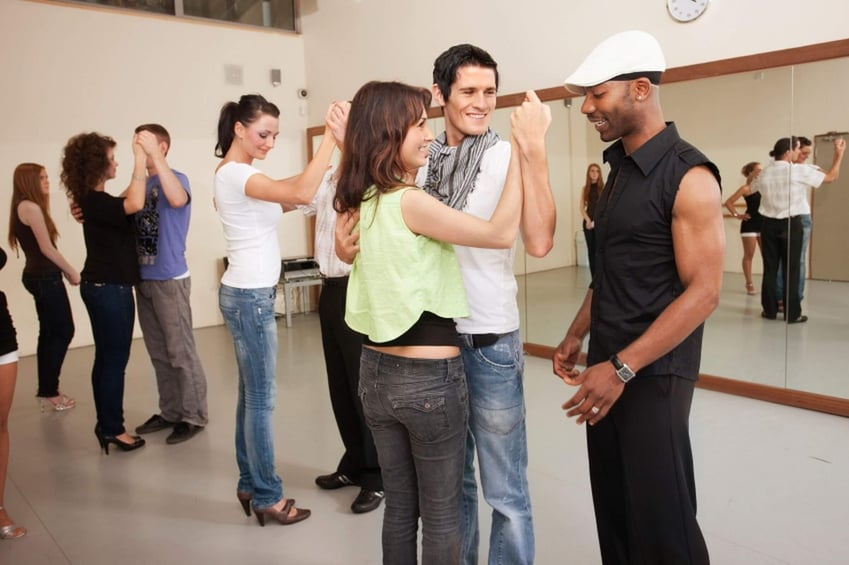
New Year’s resolutions are like any other new behavior. We are of two minds about them. The spirit may be willing, but the flesh/discipline is weak. Part of our brain, the higher floors, is gung-ho. Yes! Let’s do it. Eat healthier. Get more exercise. Be more productive at work.
The second mind, located in the lower rungs of the brain, has other ideas. The fear hub of the amygdala, constantly on the alert for danger and risks to life, ego, and pride, says, “Why bother?” “Too hard.” “Would look foolish.”
NOVELTY VS. FEAR
It’s a titanic struggle that goes on throughout our lives between the forces of growth and progress versus the lizard brain’s fear of venturing outside the comfort zone. We know who usually wins that battle. The default button is to do nothing. Doing something requires proaction, and that requires self-regulation, or discipline.
The science shows that the effort is worth it, because we satisfy our higher aspirations when we go beyond the autopilot. This is the best time of the year to make a new course happen, when receptivity is at its highest and we are willing to exert ourselves to try a new direction.
Embarking on a new path is no less than a physiological and psychological imperative. The research of brain scientist Gregory Berns has shown that the two key factors in life fulfillment are novelty and challenge. Both require us to move off status quo, or face the consequences—boredom, cynicism, life unlived.
Humans are programmed to seek out the new. It’s what got our hunter-gatherer forebears to venture beyond the next ridge to find new food sources. The need for novelty is so strong that even the anticipation of something new, before we have even experienced it, sets off the brain’s party drug, dopamine, which makes us feel good and encourages us to take on more new things.
BRAIN NEURONS DON'T LIKE RERUNS
Our brains seek out new data so insistently that when our neurons get the same information over and over, they literally stop noticing it. This is why you can drive to work without remembering passing the last five exits. Your brain neurons have been there, done that. They’re not paying attention anymore.
We all have certain core psychological needs—autonomy, competence, and relatedness—that also depend on us engaging with the new. We satisfy these needs through acts of initiative and challenge, by going beyond our normal routines.
With so much in our biology nudging us to try a new course and feel the satisfaction from doing so, you would think it would be a little less like pulling teeth to get us to take on a new resolution—and stick with it. But that doesn’t take into account the other mind, the security-fixated default that holds you back. It doesn’t want to change anything. It might be risky, hard. You might fail. Isn’t there an easier option?
We have to overcome that static and take the very first step in the new direction. Then the next. Otherwise, we wind up doing more than we do well at work and not managing the demands coming at us. On the life side, we get locked into stale routines. Our brains were made for participation, not vegetation.
GETTING OUT OF OUR OWN WAY
The battle between our two minds happens by rote, outside consciousness, so bringing awareness forward on the importance of trying new things is a great place to start. Change is not something to be feared. It is the fuel of fulfillment. Our autonomy and competence needs demand that we stretch, go the extra mile.
At work, this is the definition of employee engagement, bringing extra discretionary effort to the table. Employees are willing to do that (increasing productivity 28% in the process, according to the Conference Board) when they are able to demonstrate initiative and involvement in how they do their work.
The need to grow and take on challenges is what makes training and development such a key lever in employee engagement. Surveys show employee training in the top tier of factors that drive engagement, along with mentoring and managers who have open door policies. When people get skills and strategies to be more effective and manage demands better, they respond with greater engagement.
RESOLUTION: TRAINING AND DEVELOPMENT IN 2016
We can satisfy the personal growth mandate of our brain neurons as well as organizational change and process improvements with a New Year’s resolution for employee training. Change becomes, not something to fear, but a part of the innate drive we all have for self-improvement and competence. When employees get tools to work smarter, manage interruptions, eliminate overwhelm, and control stress, as they do in my Work-Life Balance, Stress Management, Information Management, and Managing Crazy Busy Work trainings, there’s an immediate reward in energy and initiative, as people feel they have strategies and support to do their jobs.
As I mentioned in my last post, “The Three Things We Don’t Know We Need to Be Happy,” the most potent motivation is self-generated through what is known as intrinsic motivation. That comes when we act for internal reasons, not for an external payoff. Key intrinsic goals include learning and challenge, exactly what employee training brings to the table. As one study reported, “employees who are intrinsically motivated are continuously interested in the work that they are doing” (Elliott, Harackiewicz).
This new year, seize the opportunity to grow and increase productivity by initiating an employee training or development program, wherever you are on the organizations chart. On the life side, find the one thing that can make your life more fulfilling, and take the next step to make it happen.
Let the higher brain win in 2016. The glow of satisfaction from taking on a challenge will tell you that you made the right choice.
If you would like to get the year off on the right start with a training or development program, click the button below for more details.










